Omnicom Media Group launches Reconciliation Action Plan during Reconciliation Week
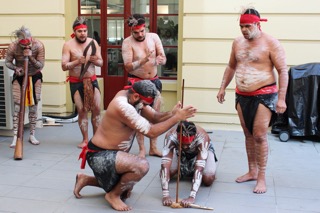 To coincide with Reconciliation Week, Omnicom Media Group (OMG) agencies held all staff events to officially launch their Reconciliation Action Plan (RAP). The plan outlines their commitment to creating social change and economic opportunities for Aboriginal & Torres Strait Islanders in the workplace.
To coincide with Reconciliation Week, Omnicom Media Group (OMG) agencies held all staff events to officially launch their Reconciliation Action Plan (RAP). The plan outlines their commitment to creating social change and economic opportunities for Aboriginal & Torres Strait Islanders in the workplace.
The RAP, which has been 12 months in preparation, was endorsed by Justin Mohamed, CEO of Reconciliation Australia.
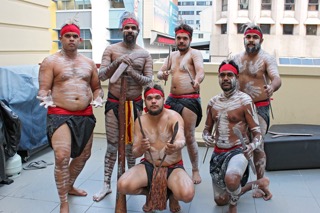 Says Mohamed: “OMG’s RAP involves multiple initiatives to develop cultural learning, cultural protocols and promoting Aboriginal and Torres Strait Islander employment. On behalf of Reconciliation Australia, I commend Omnicom Media Group on its inaugural RAP and look forward to following its reconciliation journey.”
Says Mohamed: “OMG’s RAP involves multiple initiatives to develop cultural learning, cultural protocols and promoting Aboriginal and Torres Strait Islander employment. On behalf of Reconciliation Australia, I commend Omnicom Media Group on its inaugural RAP and look forward to following its reconciliation journey.”
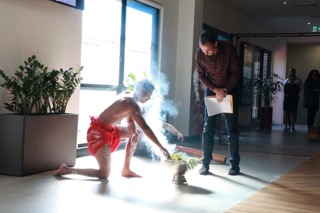 Says Peter Horgan, CEO, Omnicom Media Group Australia & New Zealand: “As part of OMG’s diversity strategy, we are keen to build a strong and productive relationship with Australia’s First People. We have set ourselves employment targets and promote career opportunities to Aboriginal and Torres Strait Islander people. We want to make a contribution to, and learn from, Australia’s
Says Peter Horgan, CEO, Omnicom Media Group Australia & New Zealand: “As part of OMG’s diversity strategy, we are keen to build a strong and productive relationship with Australia’s First People. We have set ourselves employment targets and promote career opportunities to Aboriginal and Torres Strait Islander people. We want to make a contribution to, and learn from, Australia’s 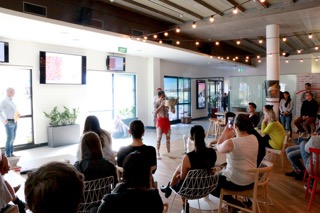 First People and acknowledge their place in our history and culture and their future part in making Australia a proud and successful nation.”
First People and acknowledge their place in our history and culture and their future part in making Australia a proud and successful nation.”
The events were held at each of the offices of OMD, PHD, Resolution, OMGP and Annalect. nationally, featuring a beautiful and moving ‘Welcome to Country’, smoking ceremony and didgeridoo performance by local Indigenous 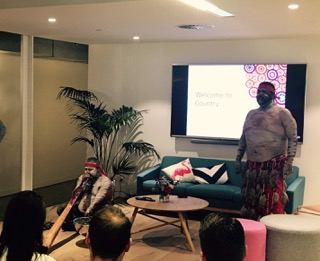 performers.
performers.
All OMG employees will be involved in implementing the RAP and will be learning about Aboriginal and Torres Strait Islander history and culture.

1 Comment
It’s on non Indigenous Australians to read and learn about our brothers and sisters. Come to demonstrations and events organised by the Aboriginal community where you live. Talk about these things with your family and friends and work mates every day, not just during Reconciliation Week. And learn about the history of where you live. Who are the rightful owners of the place? What happened to them? This is a sound start but the representation of Aboriginal Australians should be a part of every day dialogue.